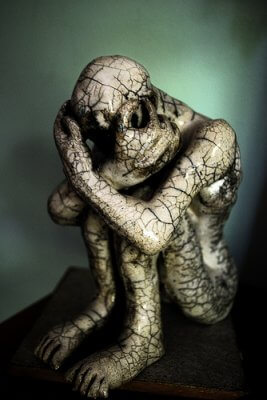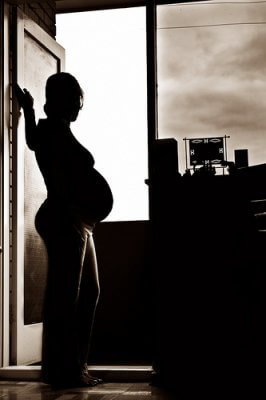The Different Types of Depression – is One of These You?

By: Alessandro Bonvini
by Andrea M. Darcy
Not sure if you are or are not depressed? Learn about the different types of depression and what depression symptoms to look out for.
[Too depressed to continue, and need to talk to someone who understands? Book an online therapist today, be talking as soon as tomorrow.]
What you need to know about types of depression
Keep in mind that the way depression is diagnosed changes by country, and by what diagnostic manual the mental health professionals in your country use.
There are also many common terms used for depression that aren’t actually ‘official’ diagnoses. But if they help you to describe how you feel, they are still useful.
What matters most is not your exact diagnosis. It’s that you find the words you need to explain what you are going through, so you can get the help you need to feel better.
Clinical depression
Here in the UK the NHS uses just one general diagnosis for all forms of depression, ‘clinical depression‘.
The doctor or mental health professional dealing with you will then rank your depression as either mild, moderate, or severe.
The general symptoms of depression include low moods, taking less pleasure in things than usual, and feeling without energy. Unlike sadness, depression is persistent and lasts for several weeks, months, or, yes, years. Read more in our comprehensive “Guide to Depression“.
Mild depression
This means that your low moods are affecting you, but you are managing to carry on in life.
You might even be able to hide your struggles from those around you, so that nobody realises you are suffering.
Moderate depression

By: April Johnson
A good half of your days are impacted by your low moods. This can include your work life, family life, social life, and physical health, such as troubles with sleep. You might have occasional thoughts that life isn’t worth living. Those close to you see the difference.
Severe depression
Severe depression means that your moods are negatively affected each and every day. You are no longer able to keep up with life. Others around you are able to tell that you are struggling. You often have suicidal thinking.
Some people with severe depression have psychotic episodes, but that is not a requirement to be diagnosed as ‘severe’. It’s more about having a lot of symptoms of depression, in a way that makes regular functioning almost impossible.
[Why not take our ‘Stressed, Depressed, or Both’ quiz now to find out where you fall on the depression spectrum?]
Complex depression
If your severe depression does involve psychotic symptoms, you also suffer other psychological issues, and your depression doesn’t seem to get better even after different types of treatments? You might hear your doctors referring to it as ‘complex depression’.
Walking depression

By: Georgie Pauwels
This is a not an official diagnosis, but a useful term used to describe many people’s experience of mild depression. You feel empty inside, but still you carry on, and on. Nobody seems to realise how much you secretly suffer. Read our article on “Walking Depression” for more.
Major depressive disorder
This is an American diagnosis from their mental health ‘bible’, the Diagnostic and Statistical Manual of Mental Health Disorders (DSM). Major depressive disorder equates with a diagnosis of severe clinical depression in the UK.
Instead of the DSM most UK practitioners refer to the depression guidelines of the National Institute for Health and Care Excellence (NICE). Nice guidelines do take into account DSM recommendations, but also those of the World Health Organisation (WHO) who put out a diagnostic manual called the “ICD-10”.
Dysthymia
Both major diagnostic guides, the DSM-IV and ICD-10, use this category to describe very mild depression that goes on for a long time.
You might not have quite enough symptoms to qualify for a depression diagnosis, or you just qualify for mild depression. Either way, you have low moods for so long that doctors recognise it’s a real problem.
In this way dysthymia could be seen as the ‘official’ term for ‘walking depression’.
That said, dysthymia is not a recommended term here in the UK. The NICE guidelines suggest there isn’t enough research to show that it is any different than mild depression expect that it it lasts longer. So here in the UK it would instead be called ‘ ‘persistent sub threshold depressive symptoms’.
Seasonal affective disorder
There are actually two forms of seasonal depression to know about, even if only one gets the attention.
Seasonal affective disorder
Do your moods plummet at the same time each year? Namely, the onset of fall and winter when the days get shorter and there is less sun? Do you then feel better when spring comes? You might want to look into a diagnosis of seasonal affective disorder, or ‘SAD’.
Reverse seasonal affective disorder
About ten per cent of those with seasonal depression actually find it’s the sun and long days that depress them. If you you have found yourself depressed when summer hits for two or more years, if you want to stay indoors and avoid the bright light? Learn more about reverse SAD.
Hormone-related depression
Hormones affect our moods. So when our hormones suddenly change, we are more susceptible to depression. This can include:
Post-natal depression
The ‘baby blues‘ are one thing. And it’s actually common to feel a bit glum after birth. After all, your entire life and identity are being rearranged.
But if you aren’t feeling yourself for six weeks or more, or if you start to experience low moods a few weeks or months after birth, then you might have post-natal depression (PND).
Pre-natal depression
Pregnancy is often an emotional time. But for some women, it’s more than just being sensitive and moody. They start to experience very dark thoughts and feel unable to manage. While not an official diagnosis yet in the UK, it’s still important to talk to your GP if you think you might have this sort of depression, also referred to as ‘antenatal depression’.
Pre-menstrual dysphoric disorder (PMDD)
Pre-menstrual tension is one thing, and can see us moody. But some women are far more than just low or grumpy. Each month they have suicidal thoughts or rages that like clockwork stop when their period begins.
Previously seen as endocrine disorder, premenstrual dysphoric disorder (PMDD) is finally getting the attention it deserves as a mood disorder. Unfortunately, though, it’s only a official diagnosis at this point in America and not yet in the UK.
Other related diagnosis
Bipolar disorder
This was at one point referred to as ‘manic depression’. But ‘bipolar’ is a much more accurate description, because it’s not just about depression.
Bipolar disorder involves periods of of mania, for some people more than periods of depression. Mania involves a state of buzzy, ‘high’ energy that sees you lose touch with realistic and acceptable limits of behaviour.
When manic you tend to do do things you later regret, such as partying for days on end, casual sex with the wrong person, a shopping spree that puts you in debt, or getting others involved in a big idea you have to later admit is beyond you.
Do any of these types of depression sound like you? Want to talk to someone about it? We connect you with some of London’s top therapists. Or try our booking platform to find therapists across the UK. Outside our country? Book an online therapist from anywhere.






I have been using cocaine and alcohol to mask depression and ‘fake it”. There’s no normality in my life, I lie and deceive, I manipulate and shift narrative. Not to steal or financial gains just to hide the shit house person I am and to disguise the real me until such times as I can no longer. I’m a delusional piece of shit waste of breath, I really am. I’m nobody you’d like to be around, your family to be around and best avoided. I’m the hypocrite of all hypocrites and just a low life dirty fuck, I hate me for being in the lives of those I love. I just hurt people without meaning to and I get no joy, create no joy, just take from others and bleed their love.
Don’t feel sorry for me, at some point I made choices and I have to live with them, the people who trust me shouldn’t have to. It’s all been a shame, a lie, a contorted truth for me to be a bad version of me.
Intrinsically I’m not a bad person or a good person, just someone who makes bad decisions based on not caring for myself and if being honest I don’t care deeply enough about others. That’s a truth.
I’m really sorry to all who know me, I wasn’t ever that version of me that you saw, I became a version of me to placate you, I’m sorry